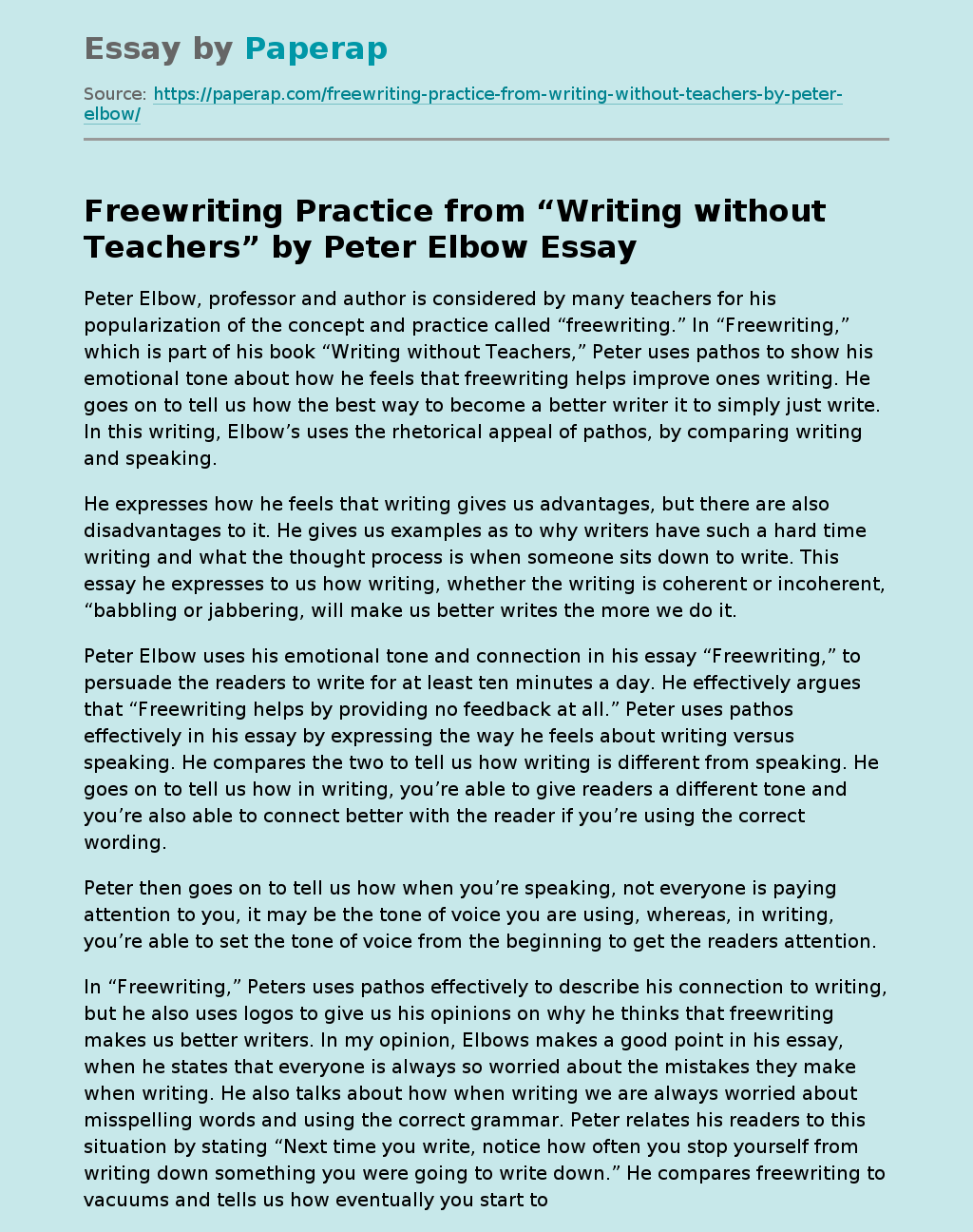Freewriting Practice from “Writing without Teachers” by Peter Elbow
Peter Elbow, professor and author is considered by many teachers for his popularization of the concept and practice called “freewriting.” In “Freewriting,” which is part of his book “Writing without Teachers,” Peter uses pathos to show his emotional tone about how he feels that freewriting helps improve ones writing. He goes on to tell us how the best way to become a better writer it to simply just write. In this writing, Elbow’s uses the rhetorical appeal of pathos, by comparing writing and speaking.
He expresses how he feels that writing gives us advantages, but there are also disadvantages to it. He gives us examples as to why writers have such a hard time writing and what the thought process is when someone sits down to write. This essay he expresses to us how writing, whether the writing is coherent or incoherent, “babbling or jabbering, will make us better writes the more we do it.
Peter Elbow uses his emotional tone and connection in his essay “Freewriting,” to persuade the readers to write for at least ten minutes a day.
He effectively argues that “Freewriting helps by providing no feedback at all.” Peter uses pathos effectively in his essay by expressing the way he feels about writing versus speaking. He compares the two to tell us how writing is different from speaking. He goes on to tell us how in writing, you’re able to give readers a different tone and you’re also able to connect better with the reader if you’re using the correct wording.
Peter then goes on to tell us how when you’re speaking, not everyone is paying attention to you, it may be the tone of voice you are using, whereas, in writing, you’re able to set the tone of voice from the beginning to get the readers attention.
In “Freewriting,” Peters uses pathos effectively to describe his connection to writing, but he also uses logos to give us his opinions on why he thinks that freewriting makes us better writers. In my opinion, Elbows makes a good point in his essay, when he states that everyone is always so worried about the mistakes they make when writing. He also talks about how when writing we are always worried about misspelling words and using the correct grammar. Peter relates his readers to this situation by stating “Next time you write, notice how often you stop yourself from writing down something you were going to write down.” He compares freewriting to vacuums and tells us how eventually you start to pick things us from your freewriting and incorporate them into your regular writings.
Elbows use both logos and ethos effectively to express how he feels about freewriting and his perspective in becoming a better writer. However, when it comes to ethos, he doesn’t go much into detail about it. Peter is however very sincere in his writing. He talks about how he feels that freewriting will make us better writers. He gives examples of real-life situations that block most people from writing. He goes on to tell us how eventually we grow out of the habits we have and become better writers all by simply doing some freewriting.
After reading “Freewriting,” I was moved and persuaded by Elbow’s to take some time to just write. Incoherent or not, writing whatever we are thinking will help us in the long run because we become to catch our “mistakes” and it becomes a routine to us. He uses pathos and logos effectively in the essay by providing examples of why he believes that writing for ten minutes will make us better writers.
Freewriting Practice from “Writing without Teachers” by Peter Elbow. (2020, Oct 28). Retrieved from https://paperap.com/freewriting-practice-from-writing-without-teachers-by-peter-elbow/

